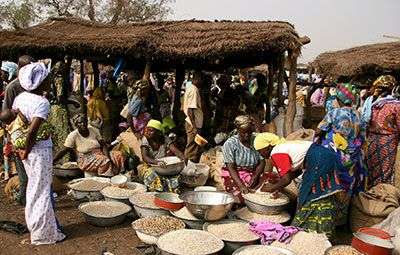The Ghana Alternative Market (GAX), known for its promise as an avenue for small and medium-sized enterprises (SMEs) to raise capital and drive economic growth, has found itself in a state of stagnation, despite recent waves of renewed market enthusiasm.
Launched in 2014, GAX was designed to offer SMEs an alternative to the main stock exchange, the Ghana Stock Exchange (GSE). It was expected to provide smaller businesses with access to capital, fostering growth and job creation. In recent years, there was a surge of interest in GAX, with hopes that it would finally gain momentum. However, the reality has not matched these expectations.
Several factors contribute to the GAX’s continued stagnation. First, regulatory hurdles and listing requirements have proven to be burdensome for many SMEs. These obstacles include stringent corporate governance standards, disclosure requirements, and the need for audited financial statements. Such stringent rules, while important for investor protection, can deter smaller enterprises from considering GAX as a viable funding option.
Second, investor interest remains limited due to the relatively small number of listed companies and the limited trading activity on the GAX. This lack of liquidity and depth in the market is a significant deterrent for investors looking to buy and sell shares.
Third, the economic environment in Ghana has been challenging, making it difficult for SMEs to thrive and for investors to take risks in the market. Factors such as currency devaluation, inflation, and fiscal instability have eroded investor confidence.
Meanwhile, the broad market has rallied to a 28.7 percent gain on a year-to-date basis, undoing the almost 13 percent loss recorded at the end of last year.
However, none of the five companies currently listed on the GAX have witnessed a price change over the past 12 months. Shares in this segment account for 0.063 percent of the GSE’s market capitalisation of GH¢73.7 billion.
Samba Foods, a wholly Ghanaian-owned food processing and preservation business specialising in the condiments and seasoning market, has remained flat over the past year at GH¢0.55. Similarly, Meridian Marshall Holdings, a provider of career-oriented post-secondary school education, is trading at GH¢0.11.
Agro processor Hords Ltd. GH and DigiCut Production and Advertising Limited have both traded at GH¢0.1 and GH¢0.09, respectively over the past 12 months. Intravenous Infusions Limited recorded a 20 percent drop in price from GH¢0.05 to GH¢0.04 in April 2022, and has remained the same since.
Pesewa One, the most recent listing on the GAX, exited the market on September 29, 2023 following a decision by shareholders to vote in favour of transferring its assets to a new entity, Pesewa ONE Franchise, which is incorporated in Delaware, USA.
The Sluggishness of GAX
Commenting on the sluggishness of GAX, was a senior analyst at Tesah Capital, Joshua Adagbe, attributes sluggishness on the GAX to reluctance of other, perhaps better-known, companies to list. He believes that for this to happen, the culture and assumptions about ownership need to change, as many still think listing their companies means they will have to relinquish ownership.
The analyst maintained that GAX has the potential to play a vital role in development of the Ghanaian economy by providing a platform for SMEs to raise capital and grow their businesses. But he stressed that more needs to be done in attracting more companies to list on the market; particularly well-known and profitable businesses, as this would help to boost liquidity and investor interest in the GAX.
“By now, we should have seen the likes of Kasapreko, Ernest Chemist and the Tobinco’s of this world all listed on the stock market. Due to the familiarity of these brands and their profitability, many investors would love to own a part of the business.”
Joshua Adagbe
The analyst commended the GSE for its engagements and financial literacy campaigns, but added that “more noise” needs to be made from all stakeholders – investors, business owners and the market operators alike.
Last year the GSE said it was optimistic about additional market listings, as managers of the stock exchange had engaged more than 140 small- and medium-sized enterprises in partnership with the Association of Ghana Industries (AGI), with further revisions to listing rules to be rolled out in order to enhance listings.
While there have been discussions about potential reforms to reinvigorate the GAX, these initiatives have yet to translate into concrete changes. Without a more conducive environment for both SMEs and investors, the GAX may struggle to fulfill its intended role in Ghana’s financial landscape.
The Ghana Alternative Market (GAX) remains stationary, despite sporadic bursts of excitement. The challenges of regulatory compliance, limited investor interest, and a challenging economic environment have hindered the market’s growth potential. For GAX to become a dynamic platform for SMEs, substantial reforms and adjustments are necessary.
READ ALSO: Why Nigerians Don’t Play Ghanaian Songs – Kwami Euge





















